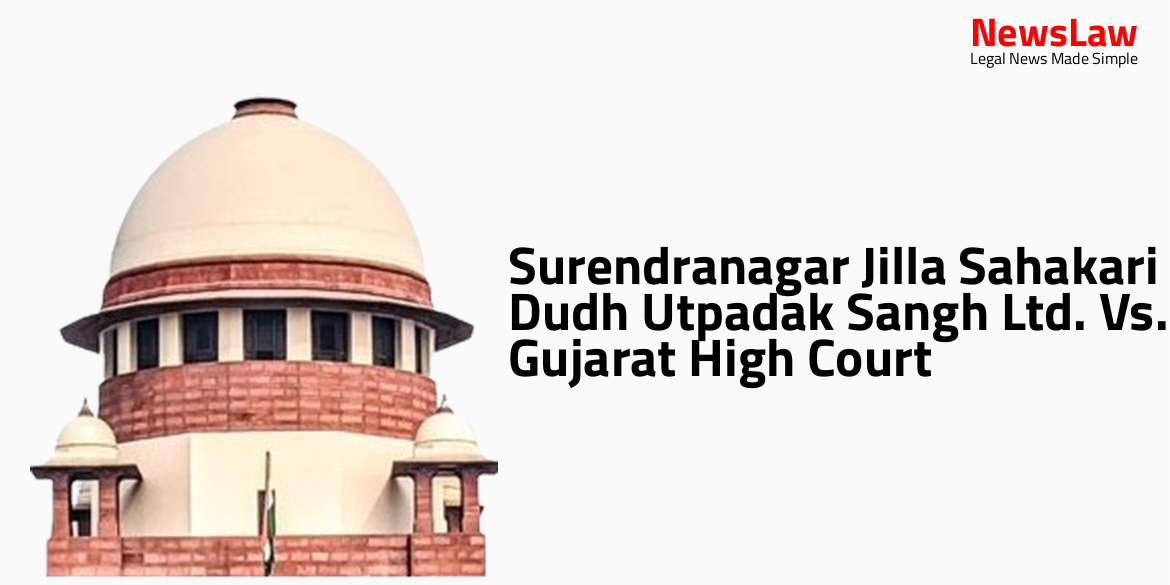In a significant ruling by the Gujarat High Court, the case involving property rights has come to a close with the court’s decision to quash the FIR and criminal proceedings. The dispute, initially filed by the complainant against the accused, has now been resolved amicably. This judgement highlights the court’s commitment to ensuring justice is upheld while preventing misuse of legal avenues. #LegalJustice #HighCourt
Arguments
- Learned advocate Mr. Mahesh K. Pujara appeared on behalf of the original complainant.
- He sought permission to file his Vakalatnama, which was granted.
Analysis
- The original complainant in the case filed an Affidavit stating that the dispute has been settled amicably and has no objection to quash the proceedings.
- The FIR alleged that the accused persons forged the Will of the respondent’s maternal grandfather and duped the complainant and his brother by creating false documents concerning property rights.
- The court must exercise caution while using its powers under Section 482 of the CrPC, ensuring decisions are based on sound principles and not to stifle legitimate prosecutions.
- The High Court should refrain from giving prima facie decisions when facts are incomplete and issues are of significant magnitude without sufficient material.
- Both parties confirmed amicable resolution of the dispute, leading to the matter being taken up for final disposal.
- The petitioners requested to quash the FIR, criminal case, and all consequential proceedings based on the settlement reached during the trial.
- The necessity to consider whether the power conferred by the High Court under Section 482 of the CrPC is justified.
- In order to make out a case against a person for the offence under Section 420 of IPC, there must be a dishonest inducement to deceive a person to deliver any property to another person.
- A breach of contract alone does not give rise to criminal prosecution for cheating unless fraudulent or dishonest intention is shown at the beginning of the transaction.
- Merely alleging a failure to keep a promise is not sufficient to initiate criminal proceedings.
- Criminal courts should not be used to settle scores or pressure parties to resolve civil disputes.
- Improving a case over time to include new allegations with the intention to convert a civil dispute into a criminal one is not acceptable.
- Initiating criminal proceedings several years after a transaction without substantial evidence is an abuse of court process.
- The Supreme Court has emphasized that there is no fixed rule for when a High Court can quash proceedings, citing relevant case laws.
- Considering the private nature of the dispute, the settlement between parties, and the absence of a breach of public tranquility, continuing criminal proceedings would cause unnecessary harassment.
- It is appropriate to refer to the Supreme Court’s decision on Section 420 of IPC which outlines the necessary ingredients for the offence of cheating to be established.
- Section 420 of the Indian Penal Code defines the offence of cheating.
- To constitute an offence under section 420, there must be cheating that results in dishonestly inducing the deceived person to deliver property or alter a valuable security.
- The essential ingredients of the offence of cheating include deception, fraudulent or dishonest inducement, and causing harm to the deceived person.
- Deception can be through false representation, misleading acts, or omissions.
- The dishonest inducement leads the deceived person to deliver property or consent to its retention.
- The act or omission resulting from the cheating must cause or be likely to cause harm to the deceived person.
Decision
- The impugned FIR CR No.11191032211973 of 2021 registered with Maninagar Police Station, Ahmedabad City is quashed and set aside for the petitioners
- Consequential proceedings initiated in pursuance of the FIR are also quashed
- Direct service is permitted
- If the petitioners are in jail, they are directed to be released forthwith if not required in connection with any other case
- The rule is made absolute to the extent mentioned
Case Title: GAURANGBHAI PUSHPAKANTBHAI SHAH Vs. STATE OF GUJARAT
Case Number: R/CR.MA/8723/2024



